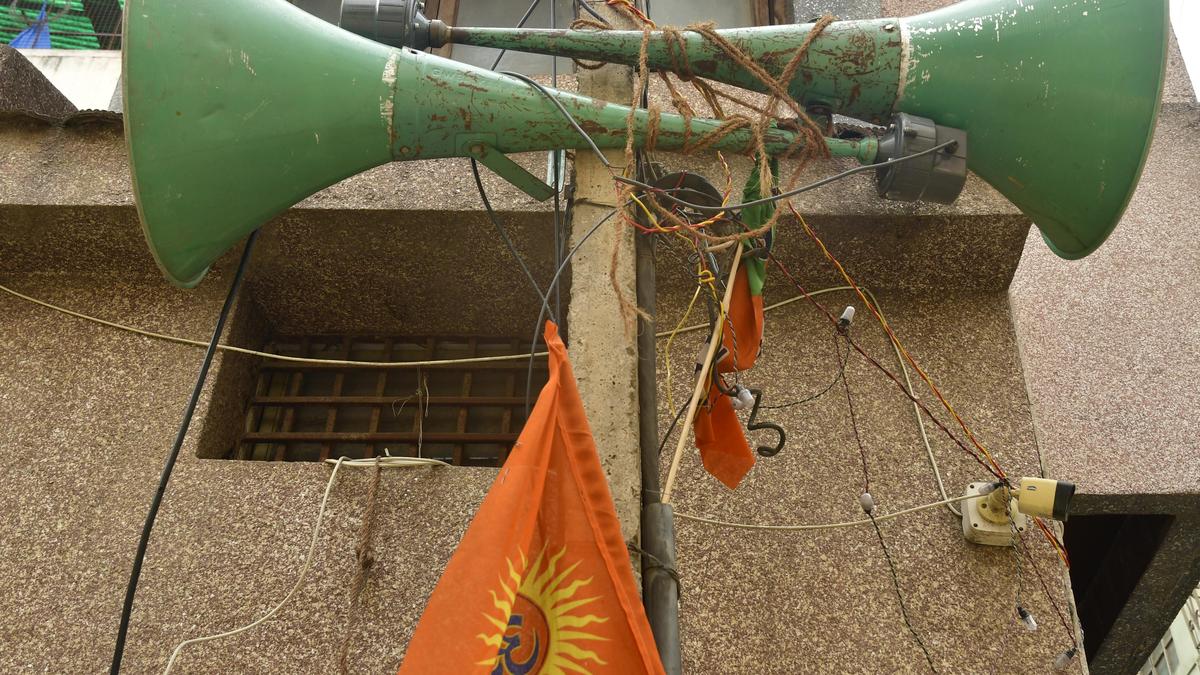Earlier this week, a video purportedly showing a group of people offering namaz at the Kempegowda International Airport in Bengaluru ignited a political controversy in Karnataka, with the opposition Bharatiya Janata Party taking exception to the incident and demanding accountability from the State government. Around the same time, in Uttar Pradesh, the police began removing unauthorised sound systems from mosques and temples in some areas. In India, it is common to see Navratri celebrations at the airport, namaz on railway platforms, commemoration of Sikh Gurus’ Jayanti on the roads of Delhi, hear azaan on a loudspeaker five times a day, and jagrans all night long. India is undeniably demonstrative about religion in public space. Should public celebrations or expression of devotion be avoided? Tanika Sarkar and Sanjay Hegde discuss the question in a conversation moderated by Ziya Us Salam. Edited excerpts:
Has India always been so demonstrative about religion?
Isn’t this a celebration of life and positivity?
The examples you gave are essentially of Hindu festivals. But the minorities are not above board. Post-2020, most mosques have started having multiple service sessions on Fridays to avoid worshippers spilling onto the road outside. But why did community leaders need COVID-19 to practise what should have been done earlier?
Sanjay Hegde: On this mosque and azaan question, I understand that the call to prayer has to be made, but it is a cacophony when several mosques within a few meters of each other start at different times. Community leaders should intervene so that the azaan can be broadcast once from one central place. Today, nothing prevents a mosque from broadcasting, say, on a WhatsApp group. And this is true of all communities. We need to take into account the old proverb that an Englishman’s freedom ends where a Frenchman’s nose begins. Be careful of your neighbours’ welfare and their sensitivities.
The Constitution allows us to follow our religion and practice it. But where does one draw a line, legally speaking?
If you are talking of Islam, I don’t think anyone can regulate the prayer itself, or even the call to prayer. But if you were to regulate the noise regarding the prayer call, or say that in an area, only one mosque will broadcast the azaan, I don’t think a court would interfere or say that every mosque could have a separate call.
In recent years, there seems to be greater display of religion in public places. How far removed is that from Holi, Deepavali or even Ram Navami celebrations during the age of the Mughals and the British?
That is politicisation of religion…
Not just Delhi. We have visuals from Ahmedabad where people are dancing on Navaratri at the airport and the airlines staff are joining them. How does one handle that?
What you are effectively saying is what the Constitution grants us as freedom has now been turned into a licence.
People now have stickers of an angry Hanuman on their cars. Is that kind of public display of religion about religiosity or is it about sending a message to others?
Is the celebration of Prophet Muhammad’s birthday through a procession part of the reaction of minorities to demonstrative celebrations of Ganesh Chaturthi and so on?
People enjoy immunity no matter what they do?
What does this say about our polity?
So, is it time for rational religiosity?
Tanika Sarkar, Retired Professor of History at Jawaharlal Nehru University, Delhi; Sanjay Hegde, Senior Advocate designated by the Supreme Court of India
